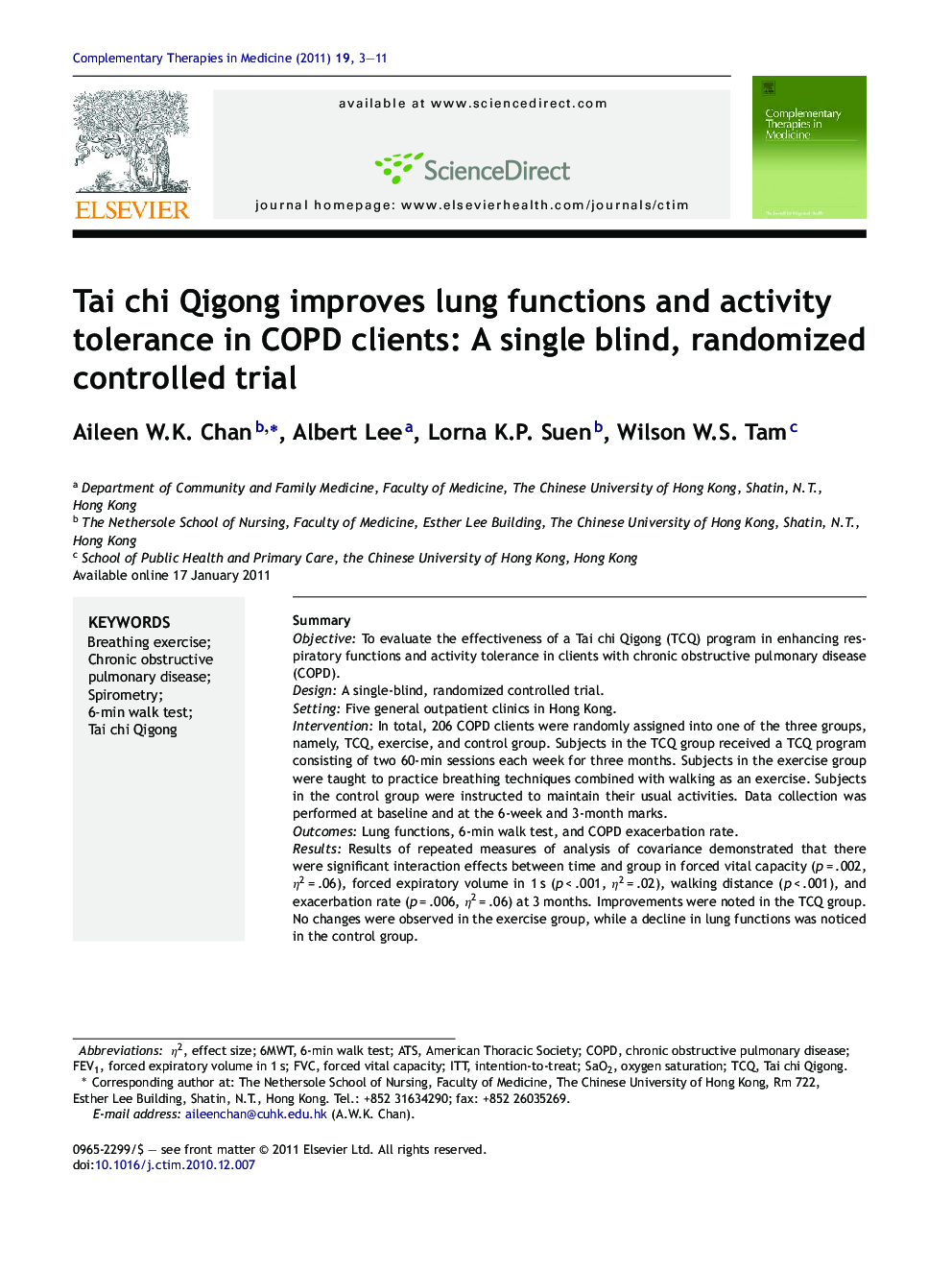| Article ID | Journal | Published Year | Pages | File Type |
|---|---|---|---|---|
| 2629263 | Complementary Therapies in Medicine | 2011 | 9 Pages |
SummaryObjectiveTo evaluate the effectiveness of a Tai chi Qigong (TCQ) program in enhancing respiratory functions and activity tolerance in clients with chronic obstructive pulmonary disease (COPD).DesignA single-blind, randomized controlled trial.SettingFive general outpatient clinics in Hong Kong.InterventionIn total, 206 COPD clients were randomly assigned into one of the three groups, namely, TCQ, exercise, and control group. Subjects in the TCQ group received a TCQ program consisting of two 60-min sessions each week for three months. Subjects in the exercise group were taught to practice breathing techniques combined with walking as an exercise. Subjects in the control group were instructed to maintain their usual activities. Data collection was performed at baseline and at the 6-week and 3-month marks.OutcomesLung functions, 6-min walk test, and COPD exacerbation rate.ResultsResults of repeated measures of analysis of covariance demonstrated that there were significant interaction effects between time and group in forced vital capacity (p = .002, η2 = .06), forced expiratory volume in 1 s (p < .001, η2 = .02), walking distance (p < .001), and exacerbation rate (p = .006, η2 = .06) at 3 months. Improvements were noted in the TCQ group. No changes were observed in the exercise group, while a decline in lung functions was noticed in the control group.ConclusionTai chi Qigong was able to improve respiratory functions and activity tolerance level in COPD clients. The breathing and walking exercise helped maintain lung functions and slow down disease progression.
